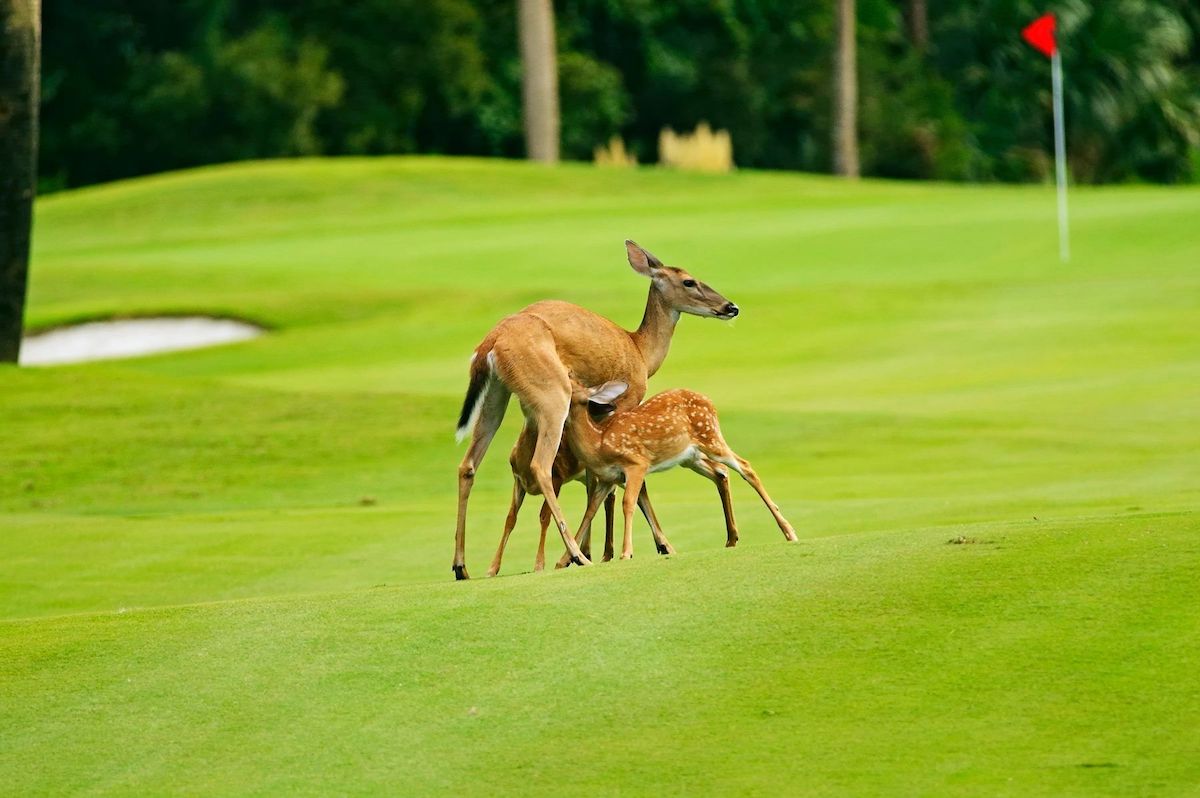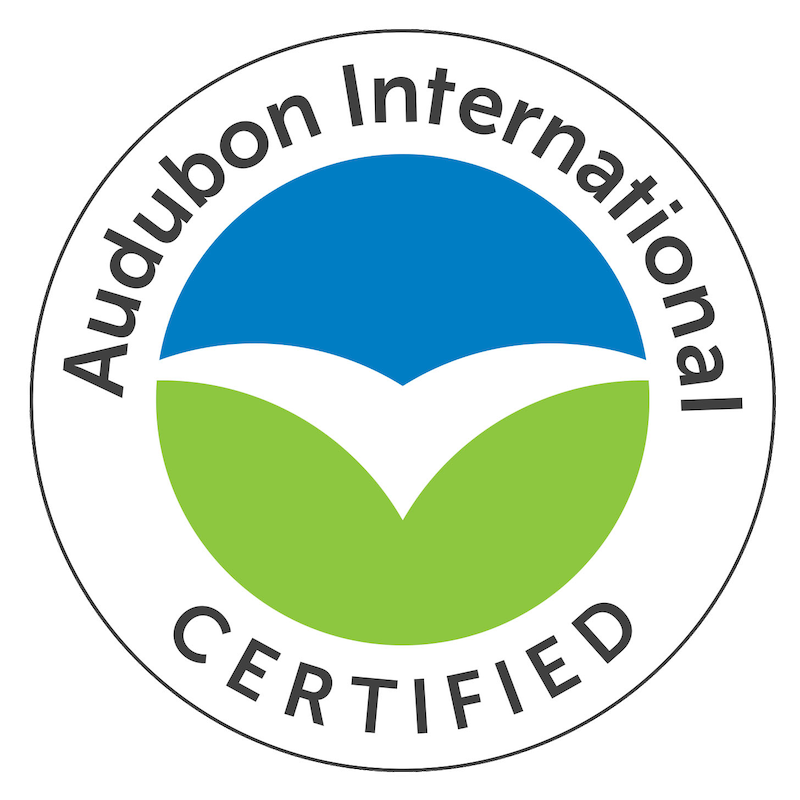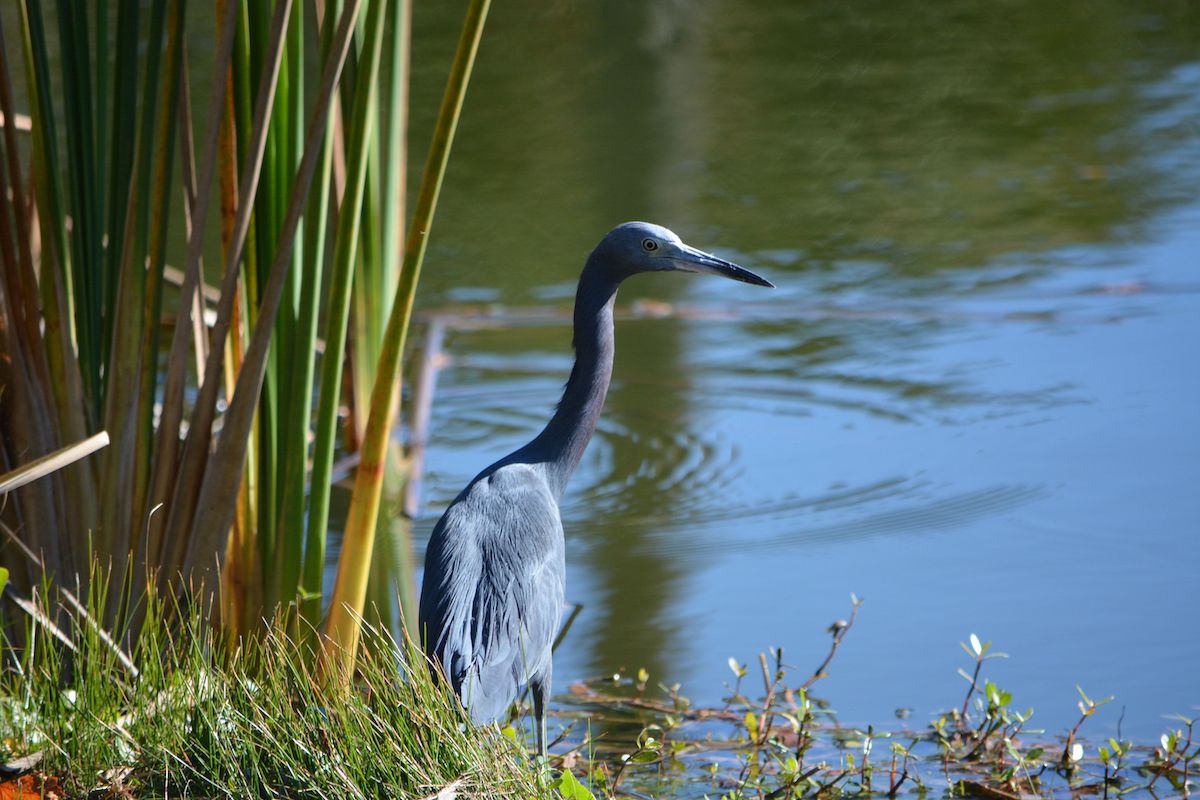Sustainability on the Greens: Top Eco-Friendly Charleston Golf Courses

You might already be familiar with our beautiful Seabrook Island golf courses in Charleston, SC after playing a round or two, but did you know that the Seabrook Island Club is also a Certified Member of the Audubon Cooperative Sanctuary Program for Golf Courses (ACSP)? This year marks our 25th anniversary as the first members of the ACSP in South Carolina and 75th in the country.
The ACSP membership is a great distinction and something that we are very excited to be a part of. This month, we will be working on our recertification for the program. So, what exactly does this certification entail and how does it set our Charleston golf courses apart? Here’s what you need to know!
Top Green (& Eco-Friendly) Golf Course in Charleston, SC
About the Audubon Cooperative Sanctuary Program for Golf Courses
 The Audubon Cooperative Sanctuary Program for Golf is an award-winning education and certification program that promotes more sustainable golf courses that help protect our environment and preserve the natural heritage of the game of golf. The global program focuses on enhancing the valuable natural areas and wildlife habitats that golf courses provide while improving efficiency and minimizing the potentially harmful impacts of the golf course operations.
The Audubon Cooperative Sanctuary Program for Golf is an award-winning education and certification program that promotes more sustainable golf courses that help protect our environment and preserve the natural heritage of the game of golf. The global program focuses on enhancing the valuable natural areas and wildlife habitats that golf courses provide while improving efficiency and minimizing the potentially harmful impacts of the golf course operations.
As a worldwide advocate of sustainability, Audubon International has developed Standard Environmental Management Practices that are generally applicable to all golf courses. These standards form the basis for the ACSP Golf Program Certification guidelines. The Seabrook Island Club tailors our maintenance practices and resources to satisfy the six primary goals of the program, including 1) Environmental Planning, 2) Wildlife Habitat and Management, 3) Chemical Use Reduction and Safety, 4) Water Conservation, 5) Water Quality Management, and 6) Outreach and Education.
Here is a breakdown of the roles each of these objectives play in the ACSP certification:
Environmental Planning: Evaluation and planning help course managers balance the demands of golf with their responsibility to the natural environment. An initial site assessment and environmental plan, followed by yearly review and goal setting, help golf course superintendents and others to responsibly care for the land, water, wildlife, and natural resources upon which the course is sustained.
Wildlife Habitat and Management: Implementing environmental management practices enhances existing natural habitats and landscaping on the golf course to promote wildlife and biodiversity conservation. The great variation in golf course location, size, and layout, as well as special wildlife species and habitat considerations, must be accounted for when planning and implementing appropriate practices.
Chemical Use Reduction and Safety: Certified golf courses must employ best management practices and integrated pest management techniques to ensure safe storage, application, and handling of chemicals and reduce actual and potential environmental contamination associated with chemical use.
Water Conservation: Water conservation on the golf course involves maintaining irrigation equipment to maximize efficiency and minimize waste, as well as employing water-conserving irrigation practices.
Water Quality Management: The use of best management practices helps golf courses to protect the health and integrity of water resources. Water quality monitoring provides a valuable tool for evaluating whether management practices are working.
Outreach and Education: Support for the environmental management program is essential to its long-term success. A variety of education and outreach activities assist golf course maintenance staff in communicating with patrons and community members and invite participation where appropriate. The ACSP for Golf Courses requires that golf courses form a Resource Advisory Group to help plan and implement environmental projects and educational efforts. Representatives from the golf course, as well as the local community, often participate in offering advice or volunteer assistance.
Inside the Grass: Seabrook Island’s Sustainability Initiatives
In accordance with the Certified Sanctuary designation requirements outlined above, The Seabrook Island Club staff is committed to operating in the most sustainable manner possible. Our staff consistently looks for opportunities on the Ocean Winds and Crooked Oaks courses to do just that.
As one example of our ongoing efforts to be better stewards of Seabrook’s natural habitat, golf course maintenance staff analyzes areas where we can reduce mowing, landscaping, and the use of water and fertilizer. Additionally, our unique birding program, made possible by a continued partnership with the Seabrook Island Birders, has not only enabled the increased monitoring of various native species but also improved the maintenance of the numerous birdhouses we have on the courses. In recent years, golf course maintenance staff has worked intensively on making ecological improvements to the course lakes, too.

As a result of our sustainability efforts, our Charleston golf courses were once again ranked as two of the “Best You Can Play in SC” golf courses in South Carolina among numerous other honors. Most recently, Seabrook Island was featured in the Spring 2021 issue of Palmetto Golfer for our efforts to reduce siltation buildup, improve oxygenation, and improve our aquatic habitats on both courses. We have allocated resources to the lake and maths systems that will dramatically improve the water resources we manage.
Additionally, the irrigation system changeout on Ocean Winds will help us to reduce water and electricity on the course by as much as 30% compared to the old system. All of these things come as a part of our commitment to Environmental Planning and our role as stewards in the program. Our standing as the first courses in South Carolina to be certified (and as 1 of only 38 overall to be certified in the state) should bring Club members much pride and recognition to a job well done in taking care of our courses and the community for generations to come.
Play on Seabrook’s Sustainable Golf Courses in Charleston, SC
A special thanks to our Seabrookers and golf staff alike for supporting this effort for so long! We hope you will take advantage of this wonderful honor out on our beautiful Charleston golf courses. If you are ready to hit the links, we encourage Club members and guests to enjoy uncrowded playing conditions, 36 holes of challenging championship golf, and two uniquely different courses. To learn more about our award-winning golf courses and other world-class amenities, click here. See you out on the course!

